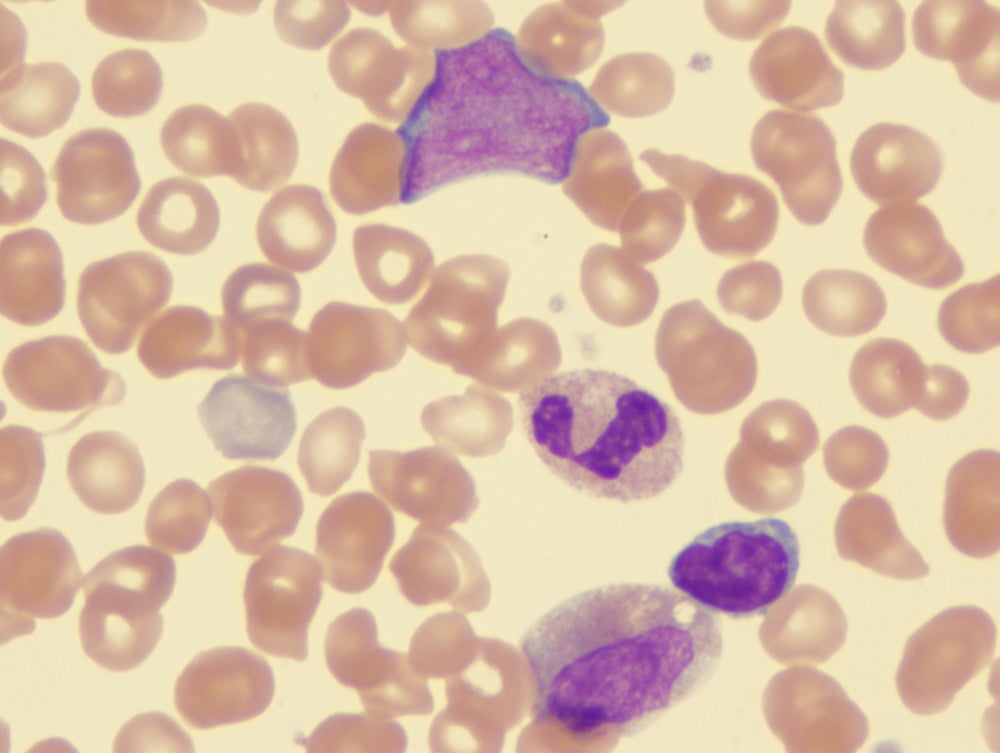On 15 September 2023, the US Food and Drug Administration (FDA) approved GlaxoSmithKline’s (GSK’s) Janus kinase (JAK) inhibitor, Ojjaara (momelotinib), for the treatment of intermediate or high-risk myelofibrosis in adults with anaemia.
Myelofibrosis is an uncommon form of blood cancer distinguished by the accumulation of scar tissue (fibrosis) within the bone marrow.
As a result of this marrow fibrosis, a prevalent symptom of the condition is decreased blood cell count, particularly red blood cells, leading to anaemia.
Currently, the treatment paradigm for anaemic myelofibrosis patients is substandard in terms of efficacy, with previously approved JAK inhibitors being notorious for their myelosuppressive effects and their ability to further induce anaemia, resulting in decreased oxygen circulation throughout the body.
However, Ojjaara fills this critical unmet need as its approval signifies it as the first drug offering treatment for myelofibrosis patients with disease-related anaemia, with the potential to establish a new standard of care for such patients.
Through the inhibition of JAK1 and JAK2, Ojjaara mitigates splenomegaly, and its action on activin A receptor 1 results in a reduction in the level of hepcidin, a critical contributor to anaemia.

US Tariffs are shifting - will you react or anticipate?
Don’t let policy changes catch you off guard. Stay proactive with real-time data and expert analysis.
By GlobalDataOjjaara’s approval was substantiated by results from the phase III MOMENTUM trial, whereby participants were divided into two groups.
Two-thirds of the patients (130 individuals) in the MOMENTUM trial were randomly allocated to receive Ojjaara in combination with Sanofi’s Danocrine (danazol) while the remaining one-third (65 patients) were assigned to the Danocrine group alongside a placebo.
The study’s primary endpoint, a reduction of 50% or more in the tumour symptom scores, was achieved in 25% of patients in the Ojjaara group versus 9% in the placebo group.
Notably, these tumour symptom scores encompassed various factors such as the necessity for blood transfusions due to anaemia and the presence of an enlarged spleen, a common and potentially hazardous complication in myelofibrosis patients.
Data originating from a subset of patients involved in the SIMPLIFY-1 trial were also considered during the approval process, demonstrating that Ojjaara achieved a reduction in spleen volume response of 35% or greater.
Given that approximately 30%-40% of patients experience anaemia upon diagnosis, and considering this is a common side effect associated with other JAK inhibitors, Ojjaara could have an advantage against its competitors in the myelofibrosis treatment landscape.
GlobalData’s patient-based annual forecast predicts Ojjaara’s global sales to reach $575m in 2031.





